Where Can Workers Live?

Part of the debate around "affordable" housing is the effort to co-locate workers, jobs, housing, services and facilities.
It was always thus.
A Melbourne City Council (MCC) based article in The Age (see below) seeks to argue up the case for making "affordable housing" available in the MCC area - particularly the CBD.

Note that placing "affordable housing" in unaffordable places means a subsidy is going to be paid by someone.
Melbourne City Council - and other councils - just like State and Federal governments can only spend public money as subsidies that they raise through rates, taxes and charges levied on citizens.
What are the MCC objectives? To keep CBD property prices high, to have high occupancy rates, to have high economic activity, to have "the vibe", to attract tourists and shoppers who do not live in the CBD to spend their money there.
To house the less-affluent for moral social reasons? Unlikely.
If the "gig economy" - particularly the hospitality industry - paid decent wages and provided job security we would not have a need to provide subsidised housing to baristas, to waiting staff, to cleaners, to food delivery workers, shop assistants and more.
I had always assumed the existence of public transport - trains, trams and buses - was to make possible and affordable the journey between where people lived, and where they worked.
Yes, there is some use of public transport for social, educational, entertainment, shopping and sporting ends, but the vast bulk of public transport is for the worker's commute.
Also known as the morning and afternoon peak.
And yes, workers who could not afford to live close to their work have always been disconsolate about it - the cost of commuting, the time spent on public transport, the infrequency of those services, the relative lack of services at all in outer areas.
Once upon a time (and this is not a lead-in to a fairy tale) employers built worker housing very close to their factories, their mills, their mines, their hospitals, their police stations, their schools, their post offices, their military bases....... On and on goes the list.
There were problems with this model. In many cases it meant "lose your job, lose your house" too.
Bow down to the boss, doff the cap, tug the forelock. Unpleasant, demeaning in fact.
It became unfashionable to be in housing tied to your employment.
Buy a house (affordable basic house that is), buy a car to drive to your job, get used to the traffic, demand better roads, look for a parking space, despoil the environment etc etc. Look for a higher paid job to pay for the house and the car.........
A treadmill, particularly if you over-extended yourself on the McMansion and mortgage.
There have also been promises from governments and councils to provide adequate transport networks, educational & health infrastructure, recreational facilities, police and so on.
Enough said?
There have been alternatives to the urban sprawl of detached houses tried world wide, for a long, long time.
One is called ghettos, where slum landlords provide unsanitary inner-city accommodation to those without choices - accommodation generally characterised as small, dark, dank, rat-infested, a fire hazard, stairs not lifts. You get the picture?
If not think of the New York tenements housing Italian immigrants in The Godfather. Think Glasgow, think Sheffield.
Another alternative tried extensively is called decentralisation. Places like Albury/Wodonga, Bathurst/Orange, Monarto, Canberra, Milton Keynes, Brazilia and others are selected as new or expandable "growth centres" to take jobs, population, services etc away from over-crowded cities.
Yet another is planned communities - new suburbs or towns, sometimes "gated communities" with perimeter walls & security - that have tennis clubs, golf clubs, country clubs, shopping malls integrated. Just take an express train to where you work.
The point of this saga is that the housing - and housing affordability - crisis we are now said to be in, is not a new phenomenon, it is not an Australian or a Melbourne or a Banyule phenomenon.
It is a challenge, indeed a difficult challenge, for our whole society.
The housing insecurity threat, the crippling housing costs, the homelessness agony falls hardest on a portion of our society.
The problem has its genesis in many places.
Our housing problems spring from numerous failures - failures in the labour market, failures to pay adequate wages, failures of taxation policy, failures of government policy, failures of the construction & housing markets.
Feel free to add to this list - over-regulation, under-inspection, sheer greed, land developments below flood levels, in bushfire prone areas, shoddy work, body corporate fees, even marriage failures.
We also must also face up to our complicity in many social changes - population growth, bowing down to the Great God Growth regardless of consequences, the movement of people from country to cities, the demand for ego-satisfying houses, an ageing population with health challenges, young people choosing to leave their parents homes to live independently.
Is the evolution of a short-term rental market (i.e. AirB&B) part of the problem. Yes - but only part of the problem.
The answer to the housing crisis is not as simple as building 5 story accommodation blocks in "leafy inner and middle suburbs" like Ivanhoe, Eaglemont and East Ivanhoe.
Here are some charts from ABC News to help your understanding of the housing crisis:
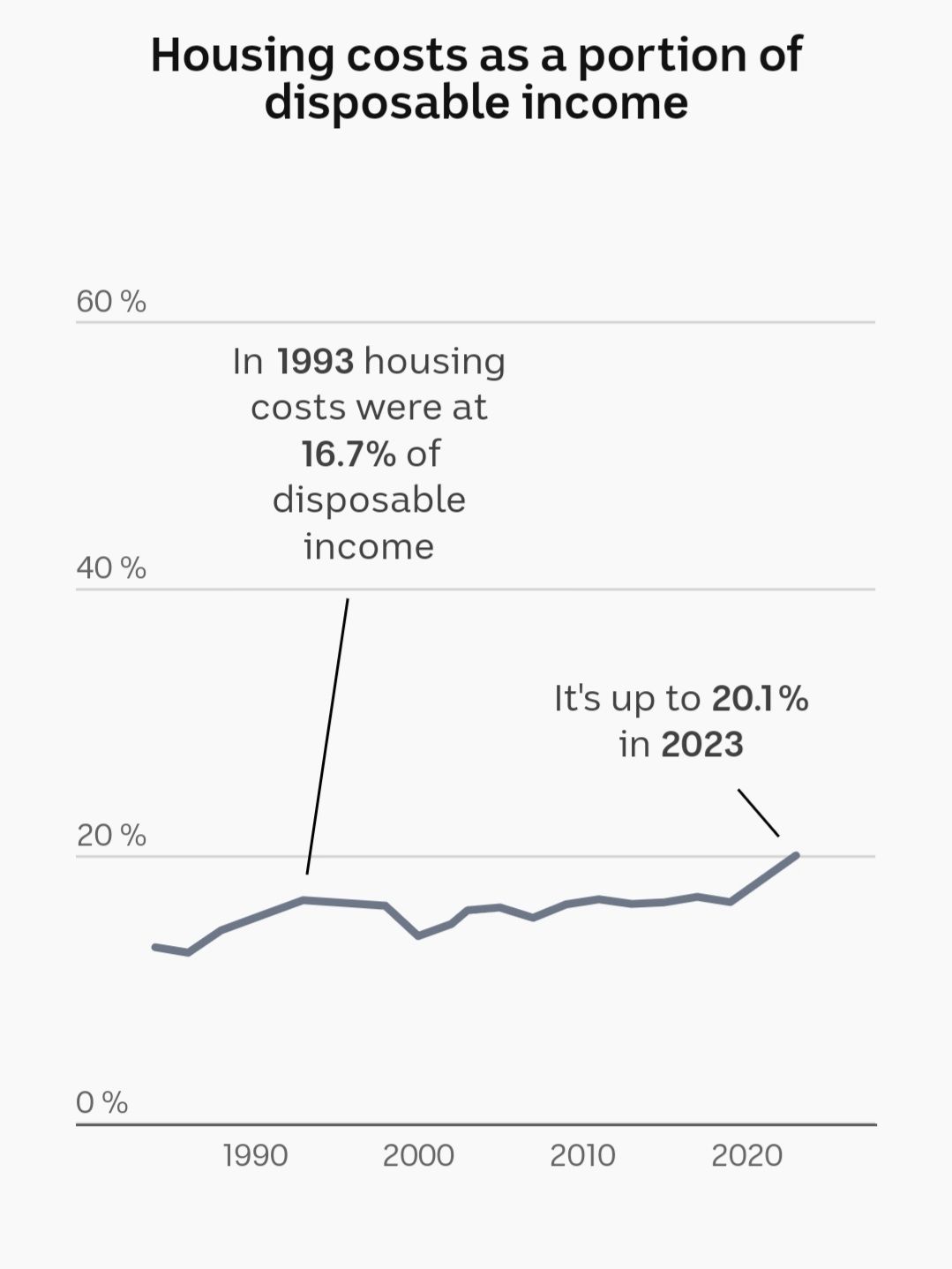
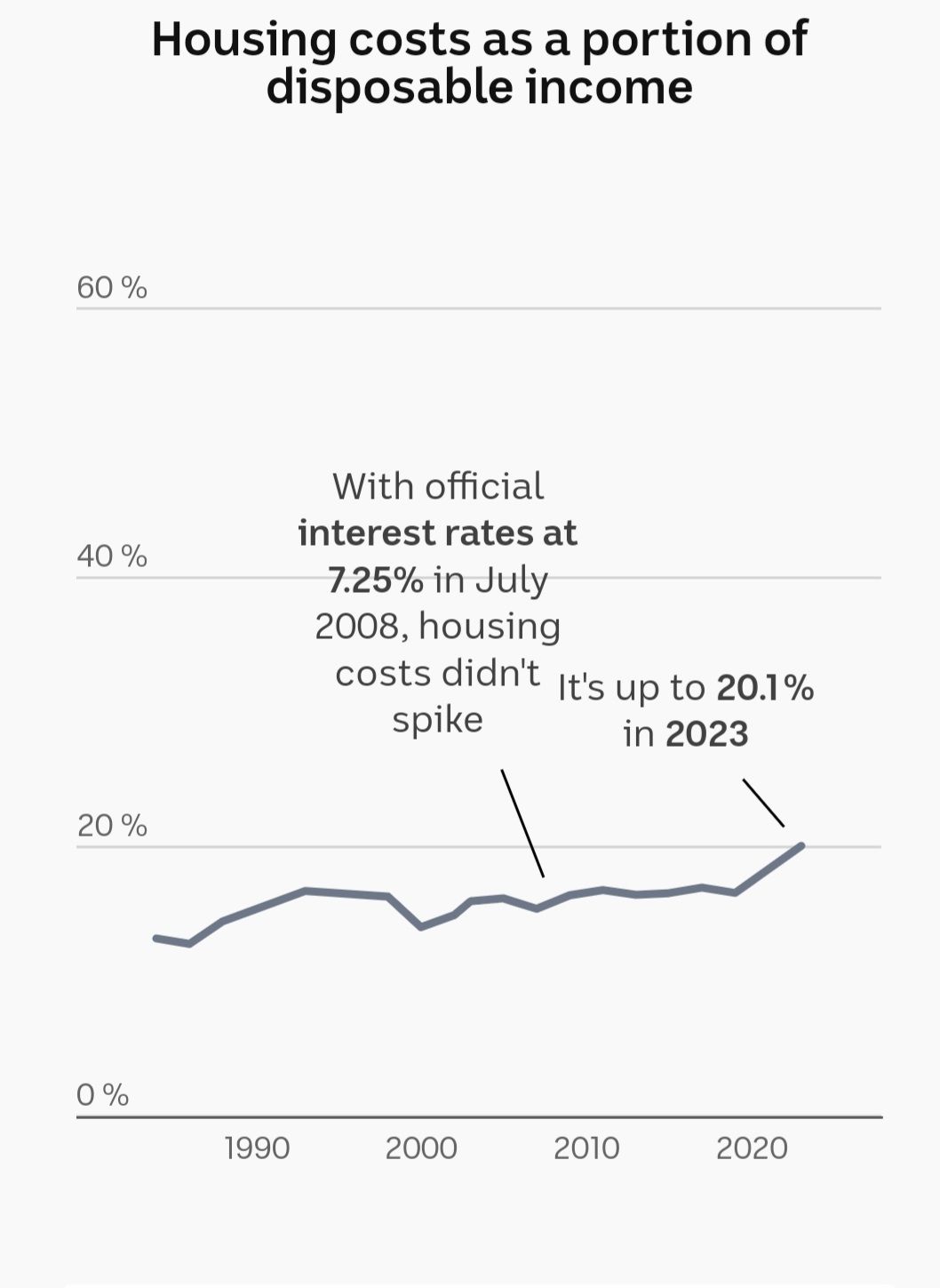
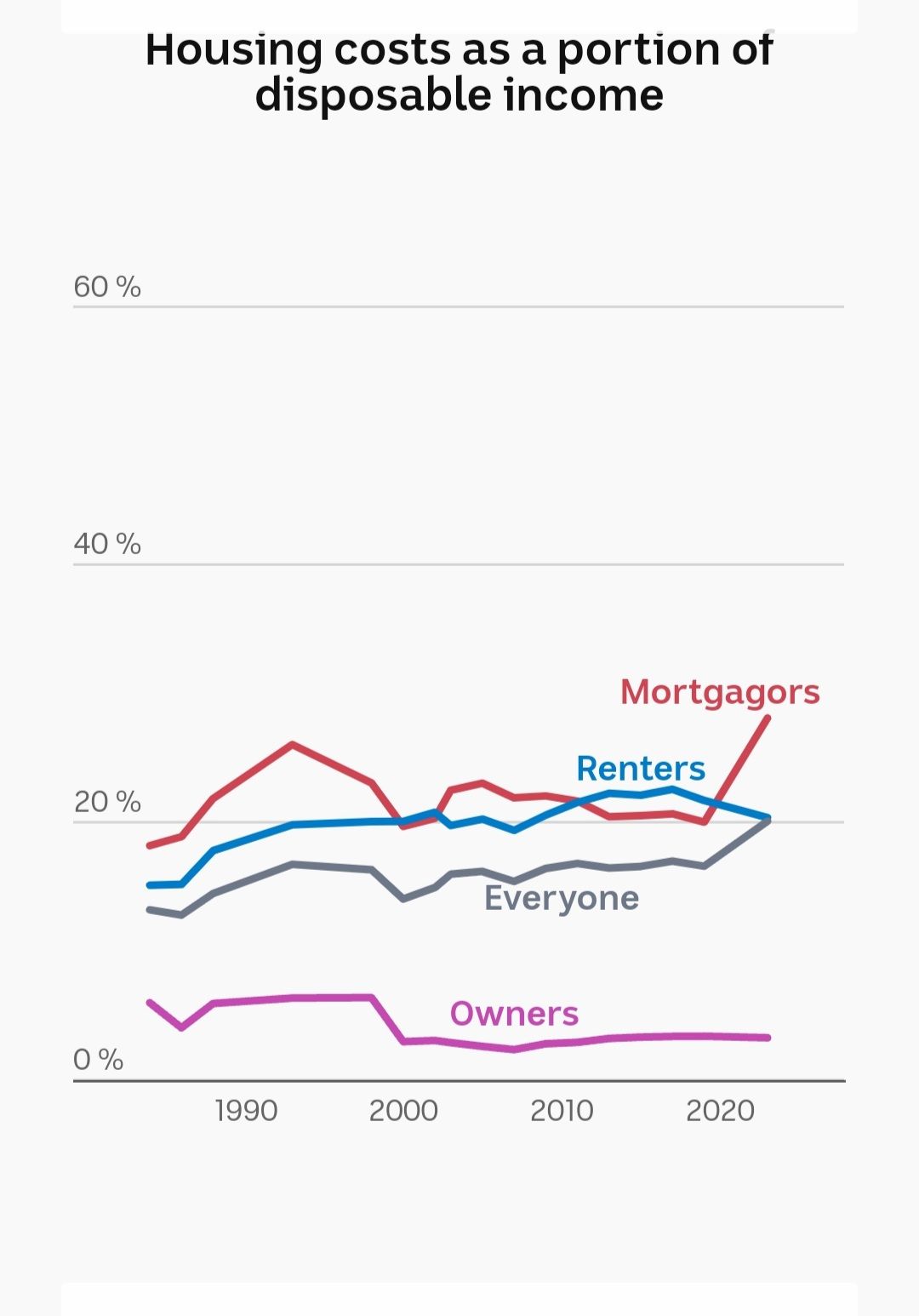
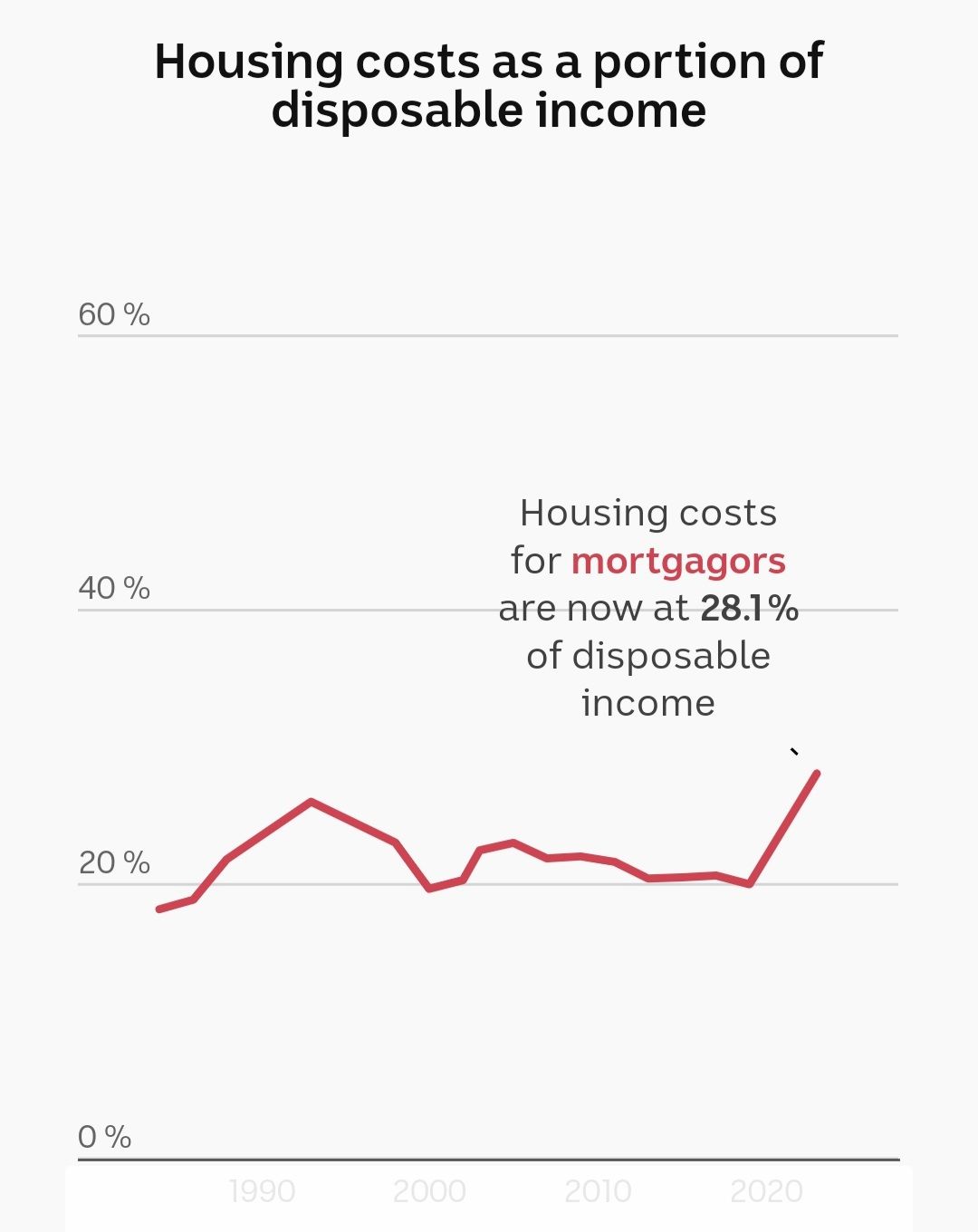
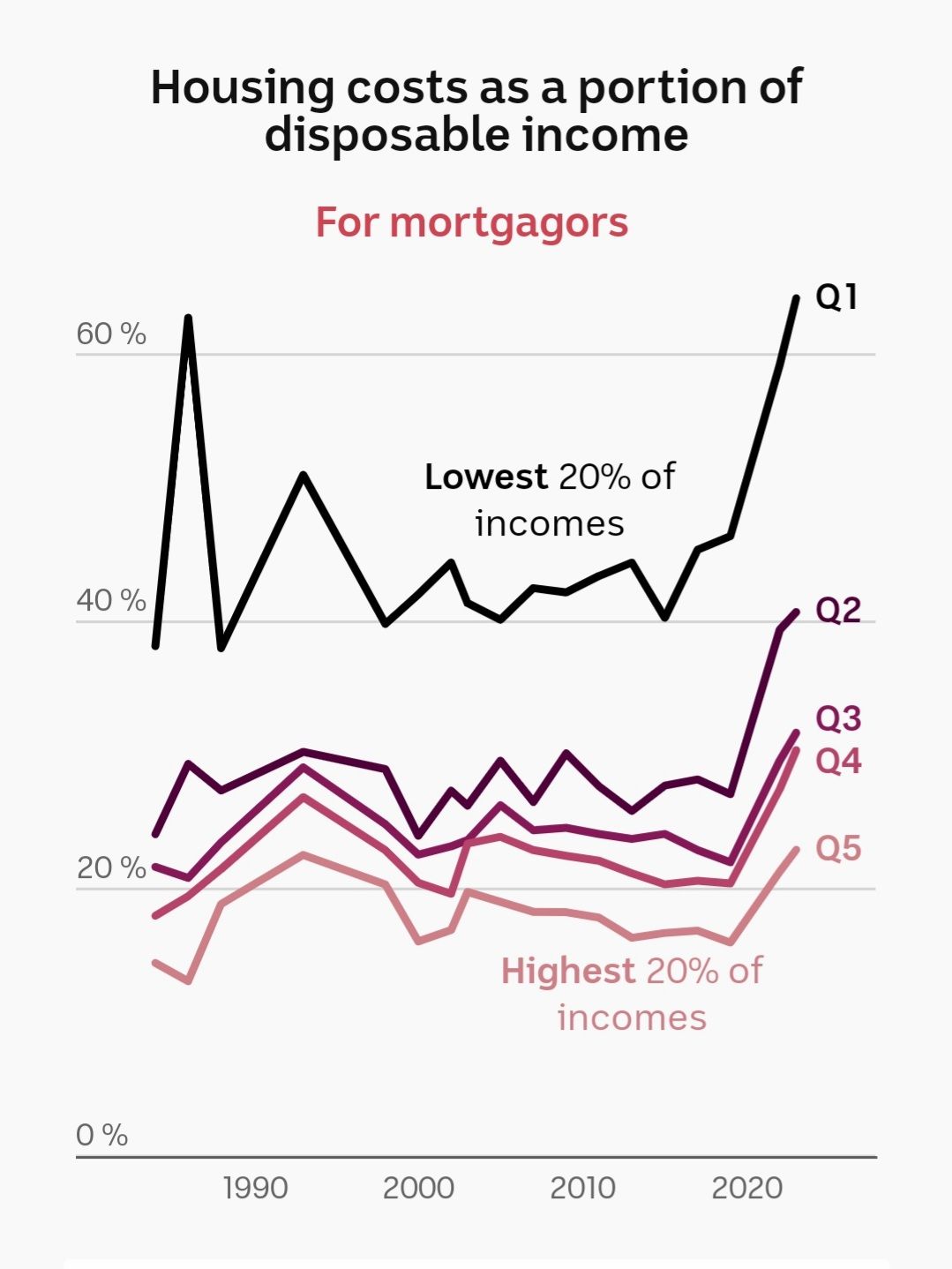
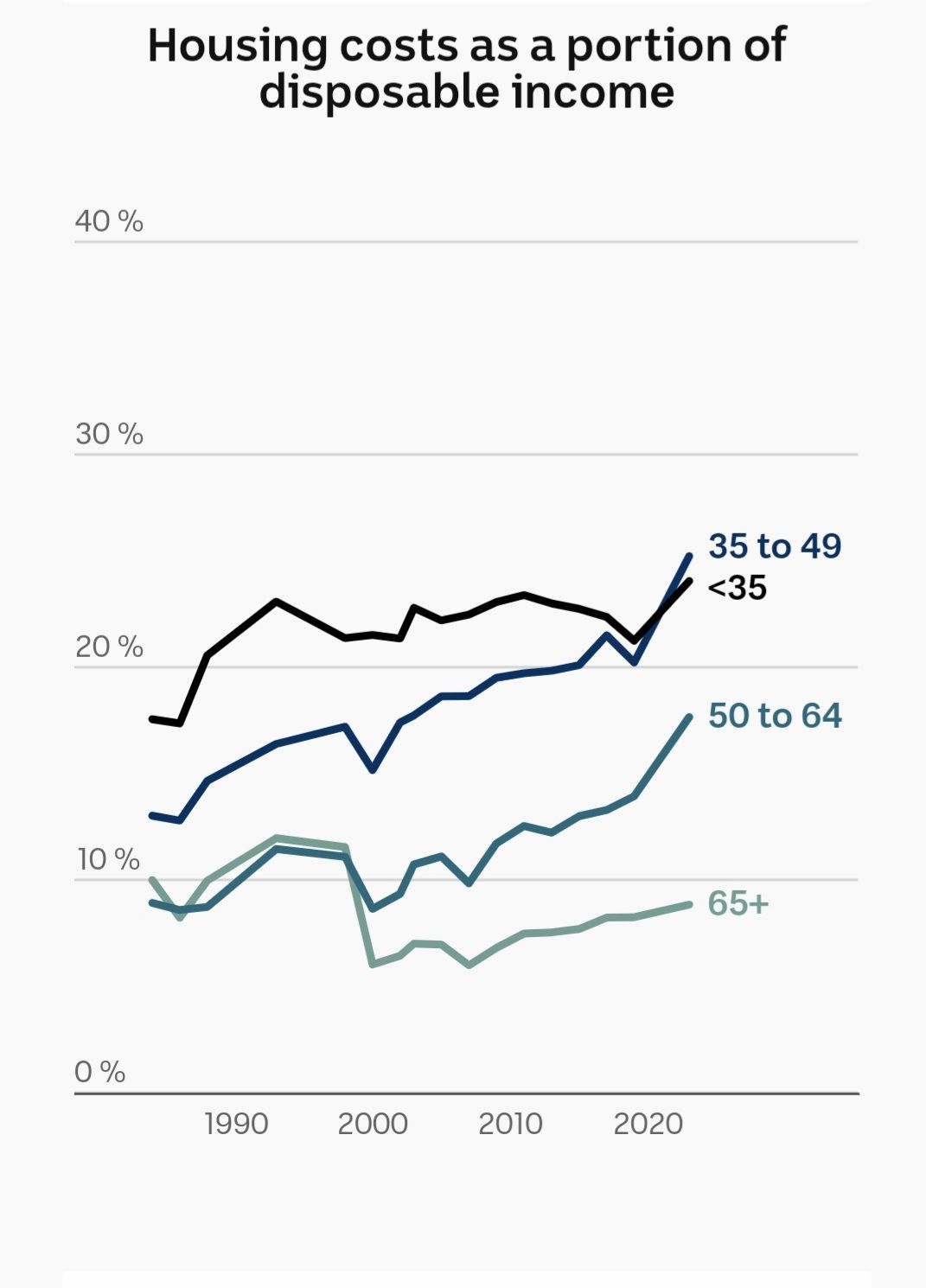
It is clear from reviewing these figures that young, lower-income workers with mortgages are those more likely to be sitting uncomfortably on the bushy end of the pineapple.
A trite observation for people to ponder - you do not get to be older without first being young, you do not get to be mortgage free without first suffering mortgages, you do not get the highest paid job without first having lower paid jobs.
More attention to the decision-making in Spring Street might forestall the looming assaults on the streets of our neighbourhood.

Member discussion